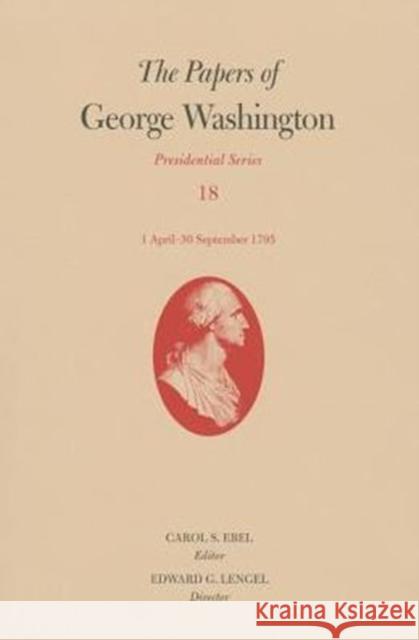The Papers of George Washington: 1 April-30 September 1795 Volume 18 » książka
The Papers of George Washington: 1 April-30 September 1795 Volume 18
ISBN-13: 9780813936451 / Angielski / Twarda / 2015 / 896 str.
International issues occupy much of Washington's attention in volume 18 of the Presidential Series, which covers 1 April through 30 September 1795. Peace agreements were made with Morocco in August and with Algiers in September. Thomas Pinckney traveled to Spain to renew negotiations over use of the Mississippi River. The fall of the Netherlands to France and the creation of the pro-French Batavian Republic there raised concerns about American finances in Europe. Washington also contended with new violations of American neutrality by British naval commanders. Washington's biggest worries concerned ratification of the 1794 Treaty of Amity, Commerce, and Navigation with Great Britain (the Jay Treaty). The Senate approved the treaty under condition that Article XII, which addressed trade with the British West Indies, be renegotiated. As Washington considered whether to ratify the document, the revelation of treaty terms in various publications sparked public outrage and a wave of anti-treaty meetings and letters. While acknowledging that the terms were not ideal, Washington felt that the treaty served U.S. interests in the balance and approved the agreement. Domestic concerns also demanded Washington's attention. John Jay stepped down as chief justice of the U.S. Supreme Court to become governor of New York, and David Rittenhouse resigned as director of the U.S. Mint. Secretary of State Edmund Randolph resigned in August after it was discovered that he and the French minister had engaged in private dealings that appeared to compromise Washington's administration. Just a few days after Randolph left office, Attorney General William Bradford died. Echoes of the 1794 whiskey insurrection in western Pennsylvania continued as petitioners asked Washington to pardon two men--John Mitchell and Philip Vigol (Weigle)--convicted of treason. He eventually did. In Indian affairs, Washington oversaw instructions to Gen. Anthony Wayne that culminated in the Treaty of Greenville with the northwest Indians. He also agreed to the negotiation of a new treaty between Georgia and the Creek Indians, which would come to fruition in 1796. Chickasaw and Choctaw chiefs visited Washington in Philadelphia during July and August. During these six months, Washington kept track of his private economic concerns and supplemented three visits to Mount Vernon with meticulous letters to farm manager William Pearce. Both personal and diplomatic concerns shaped Washington's response to the arrival in the United States of George Washington Motier Lafayette, son of the Marquis de Lafayette.











